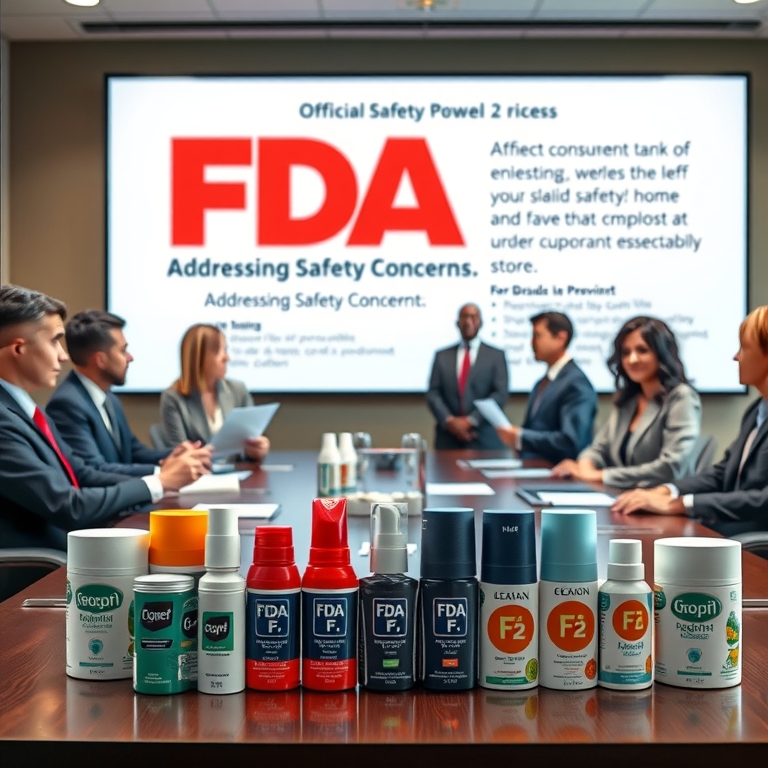In a move that has sent ripples through the personal care industry, the U.S. Food and Drug Administration (FDA) has initiated a recall of several popular deodorant brands due to concerns over potentially harmful substances. This recall, announced earlier this week, has not only raised eyebrows among consumers but also reignited ongoing discussions around product safety and regulatory oversight in the beauty and personal care sector.
The controversy centers around the discovery of benzene, a colorless or light-yellow chemical that is widely used in industrial applications, and is known to pose significant health risks. Benzene is classified as a human carcinogen, meaning it has the potential to cause cancer in humans. The presence of this substance in deodorants, products that millions of consumers apply to their skin daily, has sparked significant alarm.
The FDA’s recall is a response to independent laboratory tests that identified benzene in several batches of aerosol deodorants. These tests were conducted by Valisure, an online pharmacy and testing company that has previously uncovered benzene in hand sanitizers and sunscreen products. Valisure’s findings prompted the FDA to take swift action, underscoring the agency’s commitment to safeguarding public health. The specific brands and batches impacted by the recall have not been publicly disclosed, pending further investigation and notification to the manufacturers involved.
This recall underscores a broader concern about the potential for contamination in consumer products, particularly those that are applied directly to the skin. The FDA has stringent guidelines and testing procedures in place for personal care products, but the presence of benzene highlights potential gaps in these processes. The agency’s actions reflect an urgent need to not only address the current issue but also to reassess and potentially tighten regulatory frameworks to prevent future occurrences.
For consumers, this recall serves as a stark reminder of the importance of vigilance when it comes to personal care products. While the majority of products on the market are safe, the potential for contamination remains a reality, necessitating informed purchasing decisions. The FDA is urging consumers who have purchased aerosol deodorants to check the batch numbers and brand details and to discontinue use if their product is part of the recall. Consumers are also encouraged to report any adverse reactions to the FDA’s MedWatch Program, which allows the agency to monitor product safety and efficacy.
The implications of this recall extend beyond consumer health concerns, posing significant challenges for the companies involved. For manufacturers, this situation represents a reputational risk that can have long-lasting effects on brand loyalty and consumer trust. In today’s digital age, information spreads rapidly, and brands can find themselves facing public backlash almost instantaneously. Companies are likely to face increased scrutiny from both regulatory bodies and the public, prompting a reevaluation of their internal quality control measures.
In response to the recall, some affected companies have issued statements reaffirming their commitment to product safety and consumer well-being. Many have indicated that they are working closely with the FDA to investigate the source of the contamination and to ensure that all necessary corrective actions are taken. These responses, while necessary, also highlight the precarious balance that companies must maintain between maintaining consumer trust and navigating regulatory compliance.
The financial ramifications of such recalls can be significant. Brands may face decreased sales, increased operational costs associated with product retrieval and destruction, and potential legal liabilities. Moreover, the ripple effects can impact suppliers, retailers, and shareholders, creating a complex web of economic consequences. For larger brands, these costs can be absorbed, albeit painfully, but for smaller companies, such incidents can prove existentially threatening.
From an industry perspective, this situation may reignite debates about the need for more rigorous testing and transparency in the production of personal care products. The recall could prompt legislative bodies to push for stricter regulations and more frequent inspections, which could, in turn, increase operational costs for manufacturers. However, such measures would also enhance consumer safety and potentially prevent similar incidents in the future.
The deodorant recall also presents an opportunity for innovation within the industry, particularly in the development of safer, more sustainable products. As consumers become increasingly aware of the ingredients in their personal care products, there is a growing demand for transparency and natural formulations. Companies that can effectively respond to this demand stand to gain a competitive advantage, not only by mitigating risks associated with harmful substances but also by appealing to a more health-conscious market.
In conclusion, the FDA’s recall of popular deodorants due to concerns over harmful substances is a significant development with far-reaching implications. It highlights the critical importance of product safety and regulatory oversight in protecting consumer health. For manufacturers, it serves as a stark reminder of the need for rigorous quality control and transparency. For consumers, it underscores the importance of making informed choices about the products they use. As the industry grapples with the fallout, it will be crucial for all stakeholders to work collaboratively to enhance safety standards and restore consumer trust. Moving forward, this incident may well serve as a catalyst for positive change, fostering a more robust and accountable personal care industry.

Leave a Reply